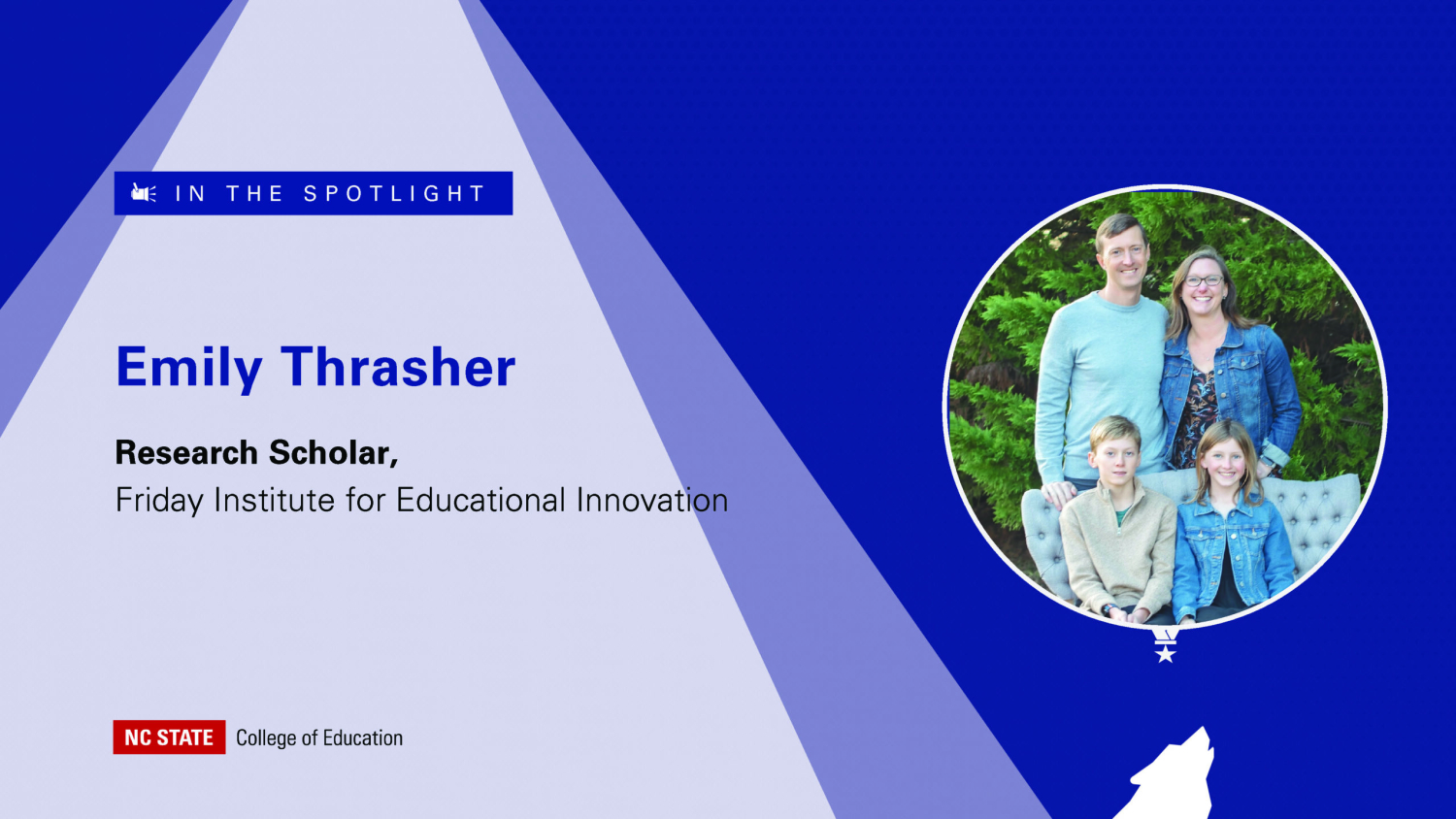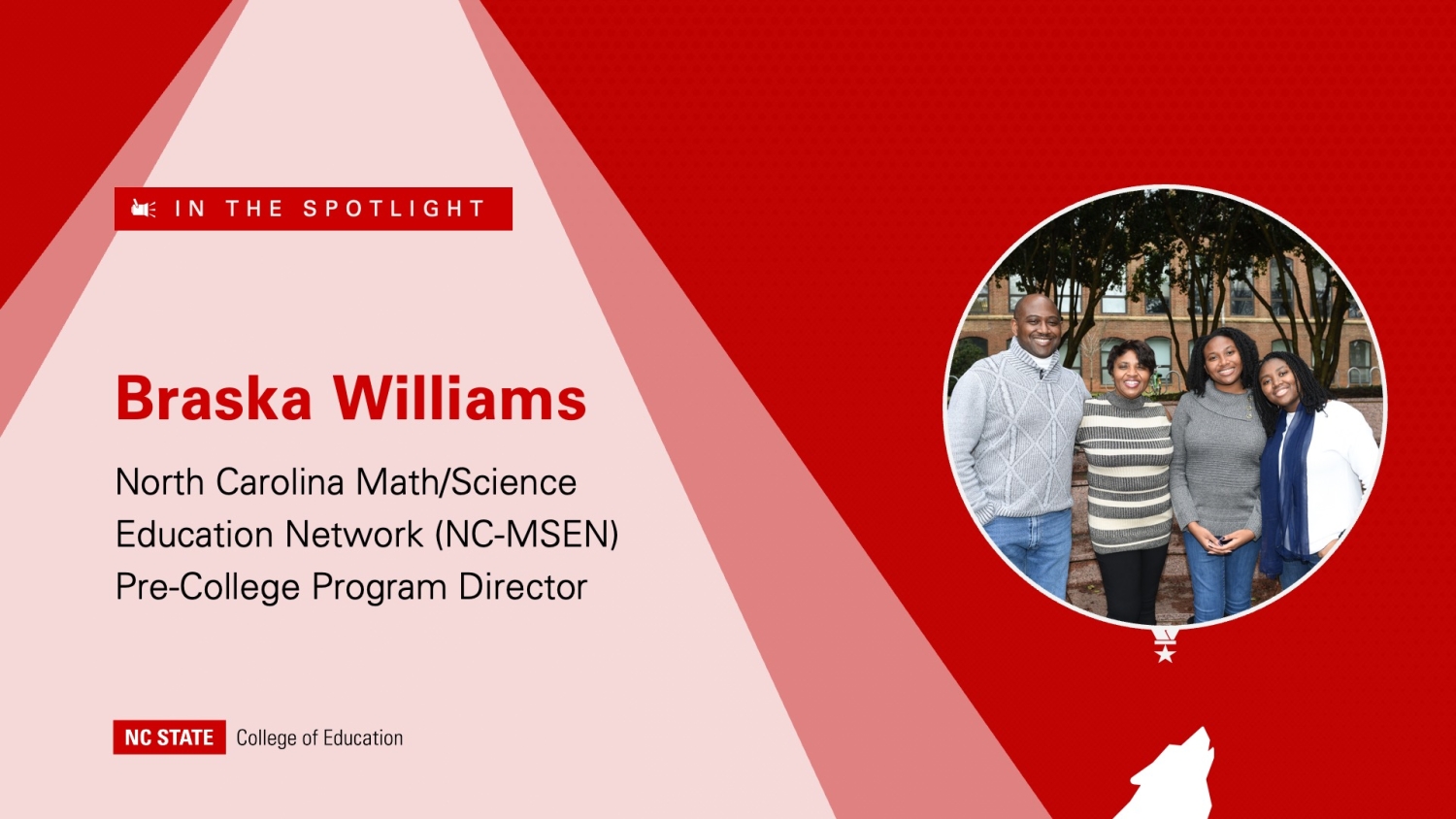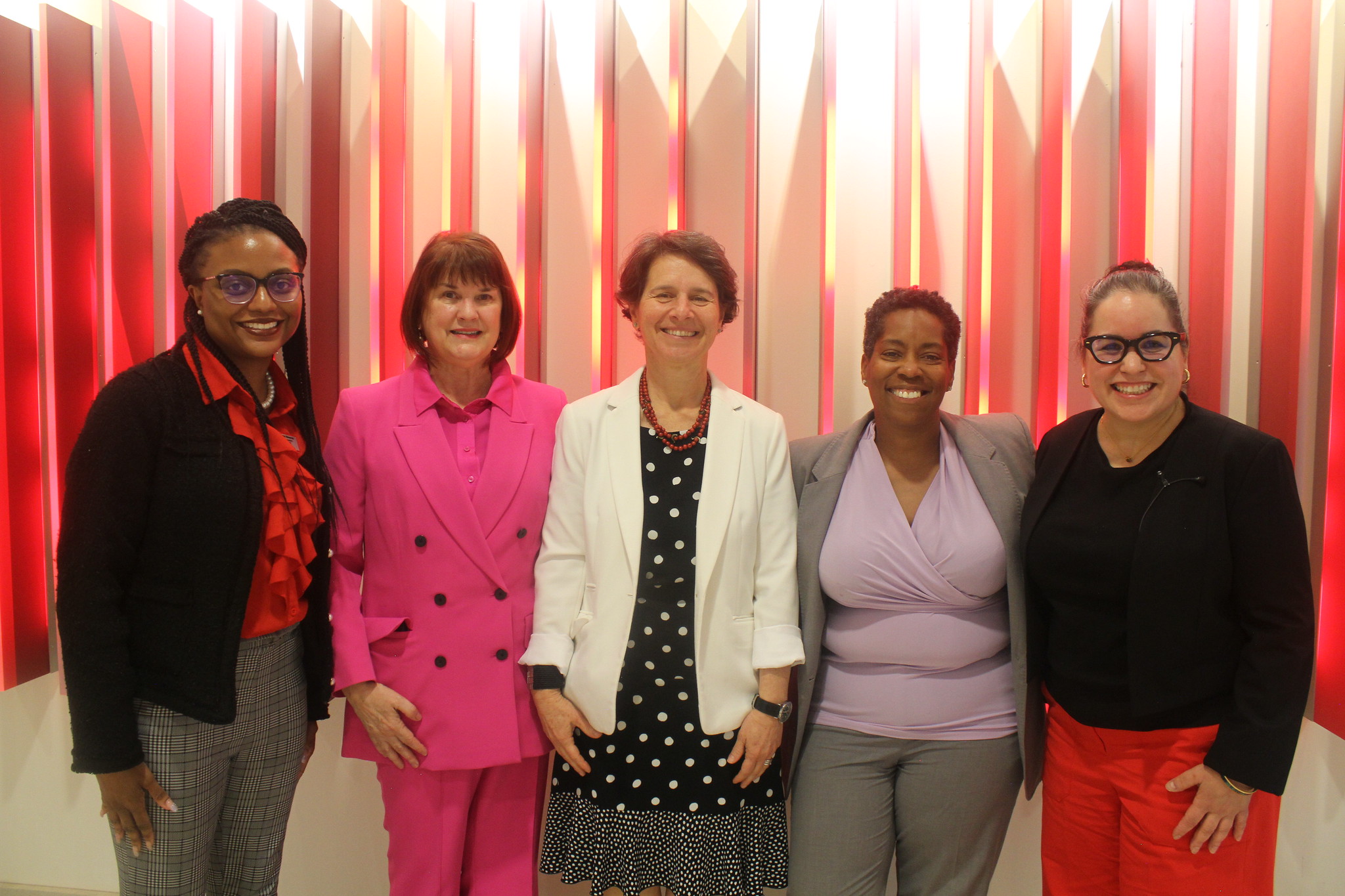Krista Glazewski has served as executive director of the Friday Institute for Educational Innovation and associate dean for translational research in the NC State College of Education, since July 1, 2023. In this Q&A, Glazewski talks about her vision for the Friday Institute, the role of the Friday Institute in North Carolina, how AI can best be used by teachers and more.
What’s your vision for the Friday Institute?
The Friday Institute is such a special place, and the beginning for my vision actually starts with the legacy of the Friday Institute. The Friday Institute has been in operation for 18 years now with such amazing impacts and operations across the whole entire state of North Carolina. My vision for the future is to really build out that legacy to continue the work and to be part of a future that we don’t even know exists yet.
What do you think is the role of the Friday Institute in North Carolina?
The Friday Institute occupies such a special space in North Carolina. We are in every district in North Carolina. We are able to respond to what educational leaders are saying are some of their priorities, we’re able to work directly with teachers and with kids in classrooms and we’re able to think through and problem solve with teachers, with students, with leaders to be able to understand what their vision, their needs, their goals are, and to respond accordingly.
How can the Friday Institute be part of the solution in addressing educational challenges?
At the Friday Institute, we are all about creating solutions for complex challenges in our world today. We really want to give special attention to the unique challenges faced by the state of North Carolina and beyond:
- We really care so much about creating equitable pathways and solutions for kids from every background, from a diverse range of backgrounds, no matter who they are or where they come from.
- We want to ensure that no matter where a kid is from, what their background, where they’re located, that they have access to the best resources, the best technology, the best infrastructure, the highest connectivity speeds. At the Friday Institute, we’re part of creating infrastructure and technology solutions as well.
- We really want to pay specific attention to the extent to which we’re preparing kids to tackle the complex problems of tomorrow. We don’t actually know the problems that they’re going to inherit, but we know that they have to be the thought partners and the solution givers of whatever tomorrow’s problems are, and we don’t want them to be hindered by education and ideas that happen in silos. We want them to be well versed and prepared for practices of working across disciplines, of solving complex problems as early as kindergarten. We want kids to be well prepared for how to engage resources, how to engage inquiry, how to ask questions of their world and to confidently give answers and to expect that their answers are going to be understood and valued and important to the people that they give those answers to. We want them to have agency, we want them to engage with practices that empower them, and at the Friday Institute, we are well prepared to both give kids these opportunities and create these pathways for them and also help teachers to engage kids in the kinds of problems and problem-solving that are going to matter to kids and really value and center kids’ agency, kids’ interest and kids’ ideas first.
Where do you see the Friday Institute in five years?
I think it’s important to recognize that the Friday Institute, it’s not a person, it’s not a director, it’s not a personality. The Friday Institute is a community, and it’s a community that centers on this really articulate and specific kind of mission. The mission is that we want to see amazing things happen in classrooms and in education. We care a lot about a future and in some ways we care a lot about a future that we ourselves can’t even imagine yet. So in five years as we‘ve crossed the threshold past the 20th year and we’re thinking through what does it look like to look at the 30th year of the Friday Institute, I think some of the things are going to be really unchanged. We’re going to still keep doing the work of innovation. We’re going to still keep doing the work of equity. We’re going to still keep doing the work that makes the Friday Institute the Friday Institute.
“The Friday Institute–it’s not a person, it’s not a director, it’s not a personality. The Friday Institute is a community.”
The Friday Institute is very much a nexus of ideas, technologies, innovations, approaches, initiatives, partnerships—all of that adds up to something that’s more than any of those individual things. In the future of the Friday Institute, I hope that what the Friday Institute does is to continue to do what it’s always done—be an innovative partner for a classroom, for a district, for the state of North Carolina, and that’s at the forefront leading the nation in what can be done in classrooms with the right kinds of innovations, partnerships, resources and ideas.
You are senior personnel for the AI Institute for Engaged Learning at NC State. How do you think AI can best be used by educators?
I think that we are just at the precipice of starting to explore how artificial intelligence can support the work of teaching and the practice of teaching, both from the perspective of handing off some tasks in the classroom to artificial intelligence but also learning from artificial intelligence what’s happening, giving special lens and insight into a team or an individual, what their learning looks like, what their pathways look like, so teachers’ interactions and engagement with kids is targeted. It’s informed and puts data and actionable information into the hands of teachers.



